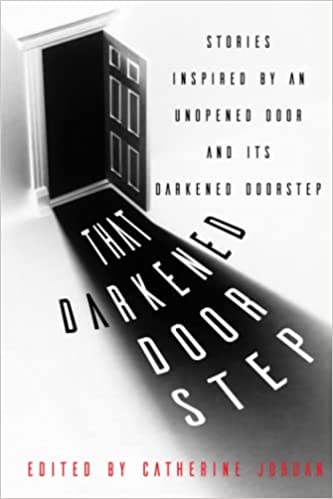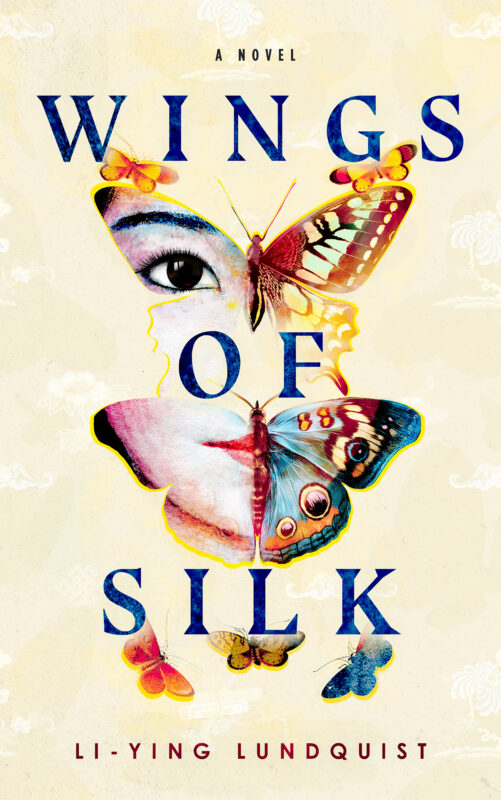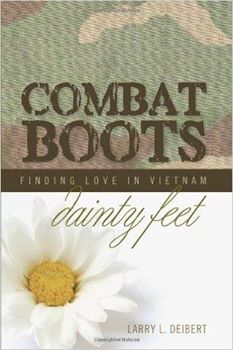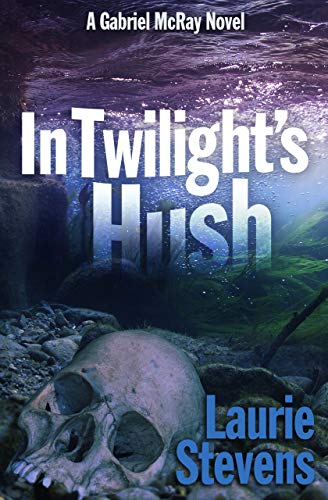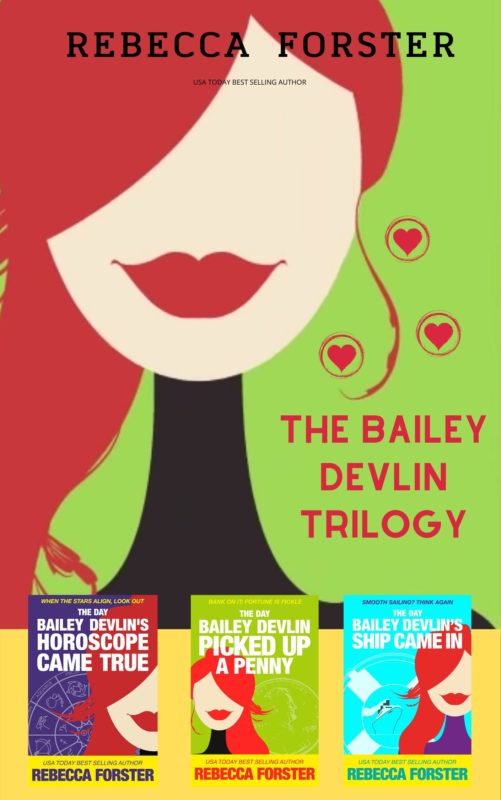e-maginings: Celebrating the Bard of Avon
April 24, 2008 by A Slice of Orange in category Archives tagged as e-maginings, William Shakespeare Today is the 392nd anniversary of the death of William Shakespeare on April 23, 1616. April 23 may also be his birthday, but no one knows for sure. We do know he was christened on April 26, 1564.
Today is the 392nd anniversary of the death of William Shakespeare on April 23, 1616. April 23 may also be his birthday, but no one knows for sure. We do know he was christened on April 26, 1564.
In any case, the bard seemed like a good topic for today’s blog. After all, he was one of the most influential writers of all time, though not much is known about his personal life. He was very prolific and is credited with having written 38 plays, 154 sonnets, and a few other poems.
About 150 years after his death, some people began to doubt that his works were really written by a more learned man. Francis Bacon, Christopher Marlowe, and Edward de Vere, the Earl of Oxford, were all suggested, but as they were all dead… Scholars dismiss these doubts, though speculation continues. I guess we’ll never know.
Shakespeare has probably given us more famous quotes and common sayings than any other writer. Here are a few that should seem familiar.
“This above all: to thine own self be true”. – Hamlet (Act I, Scene III).
“All the world ‘s a stage, and all the men and women merely players. They have their exits and their entrances; And one man in his time plays many parts” – As You Like It (Act II, Scene VII).
“Can one desire too much of a good thing?”. – As You Like It (Act IV, Scene I)
“The devil can cite Scripture for his purpose”. – The Merchant of Venice (Act I, Scene III).
“He hath eaten me out of house and home”. – King Henry IV, Part II (Act II, Scene I).
“The better part of valour is discretion”. – King Henry IV, Part I (Act V, Scene IV).
“The first thing we do, let’s kill all the lawyers”. – King Henry the Sixth, Part II (Act IV, Scene II).
“But, for my own part, it was Greek to me”. – Julius Caesar (Act I, Scene II).
“Cowards die many times before their deaths; The valiant never taste of death but once.” – Julius Caesar (Act II, Scene II).
“I bear a charmed life”. – Macbeth (Act V, Scene VIII).
“All the perfumes of Arabia will not sweeten this little hand.” – Macbeth (Act V, Scene I).
“I will wear my heart upon my sleeve for daws to peck at”. – Othello (Act I, Scene I).
“I have not slept one wink.”. – Cymbeline (Act III, Scene III).
“My salad days, when I was green in judgment.” – Antony and Cleopatra (Act I, Scene V).
“We are such stuff as dreams are made on, rounded with a little sleep”. – The Tempest
“The course of true love never did run smooth”. – A Midsummer Night’s Dream (Act I, Scene I).
“Love looks not with the eyes, but with the mind, and therefore is winged Cupid painted blind”. – A Midsummer Night’s Dream (Act I, Scene I).
For more on Shakespeare’s life and words, here are some links:
http://absoluteshakespeare.com/trivia/quotes/quotes.htm
http://en.wikipedia.org/wiki/William_Shakespeare
http://www.shakespeare-online.com/biography/
http://absoluteshakespeare.com/trivia/biography/shakespeare_biography.htm
Linda
Advice to Myself as a Newbie Author
April 22, 2008 by A Slice of Orange in category Archives tagged as Advice to Myself as a Newbie Author, Cait London, Lois Kleinsasserby Shauna Roberts
http://ShaunaRoberts.blogspot.com
Today’s Guest: Lois Kleinsasser writing as Cait London
Cait London is published in 28 countries and has written more than 60 books—historicals, category and series, paranormal, and romantic suspense—under the pseudonyms Cait London and Cait Logan. Her newest book, published by Avon, is A Stranger’s Touch. It is the second in a trilogy about three sisters who each has a special extra sense that may be a blessing or a curse.
Cait, if you could travel back in time to before you were first published, what advice would you give yourself?
 Because it’s best to address issues from experience, I am writing from the POV of a traditionally published mass-market author. Since I started writing, the Internet has made a terrific difference in learning how to write and in gathering necessary business skills. The Web has also broadened the playing field and sharpened the competition. Career writing, the markets, the publishers, and the general ball game have changed drastically, ever evolving. But in the (my own) beginning, I wish I’d known the following, which I offer with huge disclaimers.
Because it’s best to address issues from experience, I am writing from the POV of a traditionally published mass-market author. Since I started writing, the Internet has made a terrific difference in learning how to write and in gathering necessary business skills. The Web has also broadened the playing field and sharpened the competition. Career writing, the markets, the publishers, and the general ball game have changed drastically, ever evolving. But in the (my own) beginning, I wish I’d known the following, which I offer with huge disclaimers.
1. Writing can be a fulfilling career. Surprise, surprise. Unlike others, who have wanted to write since childhood, I began writing in my thirties. I did not intend to be a full-time writer, yet I have been for many years and am still thrilled. Originally, I just wanted to see my name on a cover—just once.
2. Why her and not me? Another surprise: Writing is a business, perhaps more now than ever. It’s not all about a good book. “Building and the long haul†are facets a publisher may consider, not necessarily the story. Today, a publisher may look at developing one writer over another for their promotability. Sometimes, the writer is chosen because he/she has many stories in them or can write quickly.
3. A rejection may have nothing to do with the quality of the story. It may have more to do with the publisher’s budget or another writer filling that slot already. It may have to do with being “orphaned†or the line dying, etc. The line-up is a huge consideration in publishing.
4. On occasion, I wish I’d used these words: “Thank you for the offer. I’d like to think about it. I’ll get back with you.†(Usually, with business flowing as fast as it does, the time lag is just overnight.) The reason? One wrong agreement can set back or stop your career for years. It’s best to consider each agreement carefully. This advice is especially applicable in the case of agency agreements.
5. Spend more time in editing each individual word, the placement of clauses within sentences, and the structure of a paragraph. The structure of a paragraph is important. I learned to place numbers over each sentence and to rearrange them in order.
6. Don’t compare. A published book has gone through many eyes and has been revised and edited many times. To compare that book with your own unpublished drafts is an apples-and-oranges game.
 7. Important: Getting away from the desk and computer is essential to refill the well.
7. Important: Getting away from the desk and computer is essential to refill the well.
8. It took some time to learn this one: The editor isn’t always right. Admittedly, I have written to editorial calls and have not been happy with the result. However, when you’re starting out and trying to build, they are always right. ☺
9. I am only as good as I can be. Others have more, or less, talent. Others have lucky breaks or are not as fortunate as me. Not everyone will love my stories, and that includes editors and publishers. As for sales and career choices, life situations play a huge part in what a writer does or can do. It took awhile to accept that. Many factors affect a writer’s success.
10. The second book published is even more important than the first. Here’s an age-old theory about a writer’s potential career: The first book—it could be a fluke. The second book has to be better. And almost any writer can write five books. After the success of that fifth book, you just may have a career. We’re looking now at people with more than one hundred books on their list.
11. Do not stay with an agent overlong, past the point at which you are thoroughly disillusioned. After that, the arrangement is not based on trust. Hesitancy in changing agents (or publishers) can also derail a potentially fast-moving career.
12. Don’t waste time promoting when you are trying to establish a career. Instead, use that time to produce copy. Get that contract first, work on getting your material on the stands. This advice is especially true in the case of category and series books. Sales are generally determined by the publisher, and the promotions of the author have little to do with it. However, for that first ego burst, or to establish (to yourself) that you’ve “made it,†a few local signings will do.
13. First sale choices: Publishers are not likely to take a trilogy from an unpublished beginner. Better to build that audience first and to use precious writing time and energy in projects more likely to sell. (There are always exceptions to this.)
14. Keep good records. Learn all you can about taxes as applied to the writer. Date articles and note where they were published.
✥✥✥✥✥
To learn more about Lois/Cait, please visit her Website at http://www.caitlondon.com or her blog at http://caitlondon.blogspot.com. Her book A Stranger’s Touch is available at all major bookstores and can be ordered online from Amazon.com and Barnes & Noble.
Well now I feel better
April 21, 2008 by A Slice of Orange in category Archives tagged as The Lone WriterDo you ever wonder if you made the correct career choice? I certainly never planned on writing romance novels. Heck, I never even planned to “become” a writer. If anything it never occured to me that you could “become” a writer, I figured you either were or you weren’t.
Every once in awhile, though, I find a topic when researching a story and think, ohhh I could have done that! I couldn’t have, of course. For example, it’s almost impossible to become a hot surgeon if just staring at a half-dissected fetal pig makes you almost black out.
I was also an unlikely candidate for the U.S. Astronaut Training Program given my total fear of advanced math and all things requiring a graphing calculator or finding “x.” (Did anyone else ever wonder why x couldn’t just pick a number and stick with it?)
My third career killer can be blamed, in part, on Stephen King. I have both a healthy fear of clowns and am horribly suspicious of all individuals who can bend themselves into human pretzels and stuff their bodies into a small box. That pretty much cancels out Cirque du Soleil.
So that leaves me with a skill I have been developing all my life. Fueled by a love for happily ever afters, of course.
Still, I wonder sometimes, did I pick the right genre? And sometimes it’s nice to get confirmation…
You Should Be a Romance Novelist |
 You see the world as it should be, and this goes double for all matters of the heart. You can find the romance in any situation, and you would make a talented romance story writer… And while you may be a traditional romantic, you’re just as likely to be drawn to quirky or dark love stories. As long as it deals with infatuation, heartbreak, and soulmates – you could write it. |
And just in the nick of time, too. I was getting ready to try and fold my body like a human pretzel.
BUT WHY?
April 19, 2008 by A Slice of Orange in category Archives tagged as Member At Largeby
Monica Stoner, Member at Large
As many OCC members know, I am involved in raising and showing dogs. This means putting the product of many years of thought and effort out there for someone else’s opinion. Sound familiar? After years of experience, you know as you watch the rest of the entry you have one of the better if not the best examples of the breed in the ring on that day. All things being equal, you should walk out with the purple Winner’s ribbon. Instead you end up placed behind one of the dogs you dismissed at first glance.
Sound familiar? Sound like all the times we’ve sent our manuscript “children” out for the opinion of someone else, in most cases someone we have never met, and might never meet. The major difference being we aren’t standing in front of the editor, best and brightest smile pasted on our faces, watching them try not to show any reaction as they go over our child. The editor doesn’t know us from Adam unless we’re multi-published.
In theory, dog shows are judged in an atmosphere of anonymity. In practice, judges have been around shows for decades and know many of the major exhibitors, who would be the dog world equivalent of multi-published. There are also professional dog handlers, who make a living showing dogs for other people. Depending on their level of success and recognition, they would be the writer’s equivalent of anything from already published to NYT best sellers.
With this amount of competition, how can a novice owner handler hope to compete successfully. Well, by competing. By training and grooming their dog to the best of their ability, choosing their outfits to best show off their dog, and by walking into the ring looking the absolute best they can. Wasn’t it Woody Allen who said 90% of success consists in showing up?
In the beginning you might lose, a lot. If you are able to stand back and take an objective look at your dog, or if you know someone who will be honest without being mean, you might find out your grooming could be a little better, or maybe you need to spend some more time practicing ring procedures at home before your next show. You might also find out there’s nothing intrinsically wrong with your dog, it’s just not in the judge’s style, or on that day they found a dog they liked better than yours.
By the same token, if you have taken that huge step to submit your book to an editor, only to have it come flying back with a “not for us at this time” photocopied rejection, rather than sink into ten year’s worth of gloom and swear off writing forever, maybe it’s time to take an objective viewpoint. Was this the absolute best manuscript you could have submitted? Are the characters truly fresh, and if so, do you give them enough challenges to make readers want to know them better? Is your submission groomed, polished and presented in the best possible light?
If so, and your book is still rejected, take a moment to think about the person at the other end of the transaction. Maybe yours is the umpteenth fresh new look at a Vulcan mind meld sex slave time travel futuristic vampire demon slayer they have seen this week and they read one yesterday they liked just a little bit better. Maybe the editor really, really can’t stand one more perky cheerleader type with porcelain skin, a double masters, perfect boobs and a minor in ancient Romanian mythology who spent summers working for Doctors Without Borders and winters perfecting her Olympic quality death spiral. Maybe the editor is human, is having a bad day, and your manuscript got in the way of her lying down with a cold rag over her eyes while dreaming of the words dancing rising up off the page to scratch her eyes out. Or maybe your book just isn’t what this particular publisher is looking for at this particular time.
You won’t win if you don’t enter, and you won’t sell if you don’t submit. More to the point, if you don’t enjoy the writing process, or at least feel success at having written, and your entire writing psyche is bound up with someone else’s approval, you’re going to set yourself up for major disappointment. Stop and smell the roses from time to time, have a chocolate chip cookie, call your best friend for a good whine fest, then fill out that entry form, send out that manuscript, and maybe this time you’ll have the zombie lovers on Pluto story they’ve been looking for all along.
Monica K. Stoner
tsent@ix.netcom.com
The Write Way……..
April 18, 2008 by A Slice of Orange in category ArchivesBy Maureen Child
Well, I missed my blog day yesterday and all I can cry is DEADLINE!
That’s the thing about being a working writer–when you’re in the sprint to the finish line, everything else falls by the wayside. Housework, cooking, husbands, kids, BLOGS. I’m not saying that’s a good thing, but it seems to be inevitable.
By the time you’re at the end of your book and the deadline is looming and you know there’s an editor somewhere in New York scrubbing her hands together waiting to get hold of your manuscript, that’s ALL you can think about.
You’ve lived and breathed with these characters for weeks–sometimes months. You’ve been their creator, their co-conspirator, their tormentor and because of all of that, you’re much too involved with your fictional world to look up and notice the real world.
That’s a good thing, usually. But let me be the first to say, don’t let the fictional world keep you in thrall for too long. Fight your way past your characters and your stories to make sure your real world gets plenty of attention, too. And yes, I do see the irony in me handing out that advice. But I got a wake up call last night and I vow that my real world is from now on going to be every bit as vivid as my fictional one………..
Maureen Child is the author of more than 100 books. She’s a RITA finalist this year along with being a finalist in the National Readers Choice awards. She is, at the moment, outside, enjoying the real world.
Affiliate Links
A Slice of Orange is an affiliate with some of the booksellers listed on this website, including Barnes & Nobel, Books A Million, iBooks, Kobo, and Smashwords. This means A Slice of Orange may earn a small advertising fee from sales made through the links used on this website. There are reminders of these affiliate links on the pages for individual books.
Search A Slice of Orange
Find a Column
Archives
Featured Books
THE DARKEN DOORSTEP
When faced with a darkened doorstep, think before you walk through.
More info →IN TWILIGHT’S HUSH (A GABRIEL MCRAY NOVEL BOOK 4)
Detective Gabriel McRay investigates a cold case from 1988 involving a missing teenager named Nancy Lewicki.
More info →THE BAILEY DEVLIN TRILOGY: BOOK 1-3 (The Bailey Devlin Series)
Bailey Devlin believes in fate. . .and luck. . .and fortune telling.
More info →Newsletter
Contributing Authors
Search A Slice of Orange
Find a Column
Archives
Authors in the Bookstore
- A. E. Decker
- A. J. Scudiere
- A.J. Sidransky
- Abby Collette
- Alanna Lucus
- Albert Marrin
- Alice Duncan
- Alina K. Field
- Alison Green Myers
- Andi Lawrencovna
- Andrew C Raiford
- Angela Pryce
- Aviva Vaughn
- Barbara Ankrum
- Bethlehem Writers Group, LLC
- Carol L. Wright
- Celeste Barclay
- Christina Alexandra
- Christopher D. Ochs
- Claire Davon
- Claire Naden
- Courtnee Turner Hoyle
- Courtney Annicchiarico
- D. Lieber
- Daniel V. Meier Jr.
- Debra Dixon
- Debra H. Goldstein
- Debra Holland
- Dee Ann Palmer
- Denise M. Colby
- Diane Benefiel
- Diane Sismour
- Dianna Sinovic
- DT Krippene
- E.B. Dawson
- Emilie Dallaire
- Emily Brightwell
- Emily PW Murphy
- Fae Rowen
- Faith L. Justice
- Frances Amati
- Geralyn Corcillo
- Glynnis Campbell
- Greg Jolley
- H. O. Charles
- Jaclyn Roché
- Jacqueline Diamond
- Janet Lynn and Will Zeilinger
- Jaya Mehta
- Jeff Baird
- Jenna Barwin
- Jenne Kern
- Jennifer D. Bokal
- Jennifer Lyon
- Jerome W. McFadden
- Jill Piscitello
- Jina Bacarr
- Jo A. Hiestand
- Jodi Bogert
- Jolina Petersheim
- Jonathan Maberry
- Joy Allyson
- Judy Duarte
- Justin Murphy
- Justine Davis
- Kat Martin
- Kidd Wadsworth
- Kitty Bucholtz
- Kristy Tate
- Larry Deibert
- Larry Hamilton
- Laura Drake
- Laurie Stevens
- Leslie Knowles
- Li-Ying Lundquist
- Linda Carroll-Bradd
- Linda Lappin
- Linda McLaughlin
- Linda O. Johnston
- Lisa Preston
- Lolo Paige
- Loran Holt
- Lyssa Kay Adams
- Madeline Ash
- Margarita Engle
- Marguerite Quantaine
- Marianne H. Donley
- Mary Castillo
- Maureen Klovers
- Megan Haskell
- Melanie Waterbury
- Melisa Rivero
- Melissa Chambers
- Melodie Winawer
- Meriam Wilhelm
- Mikel J. Wilson
- Mindy Neff
- Monica McCabe
- Nancy Brashear
- Neetu Malik
- Nikki Prince
- Once Upon Anthologies
- Paula Gail Benson
- Penny Reid
- Peter Barbour
- Priscilla Oliveras
- R. H. Kohno
- Rachel Hailey
- Ralph Hieb
- Ramcy Diek
- Ransom Stephens
- Rebecca Forster
- Renae Wrich
- Roxy Matthews
- Ryder Hunte Clancy
- Sally Paradysz
- Sheila Colón-Bagley
- Simone de Muñoz
- Sophie Barnes
- Susan Lynn Meyer
- Susan Squires
- T. D. Fox
- Tara C. Allred
- Tara Lain
- Tari Lynn Jewett
- Terri Osburn
- Tracy Reed
- Vera Jane Cook
- Vicki Crum
- Writing Something Romantic
Affiliate Links
A Slice of Orange is an affiliate with some of the booksellers listed on this website, including Barnes & Nobel, Books A Million, iBooks, Kobo, and Smashwords. This means A Slice of Orange may earn a small advertising fee from sales made through the links used on this website. There are reminders of these affiliate links on the pages for individual books.

